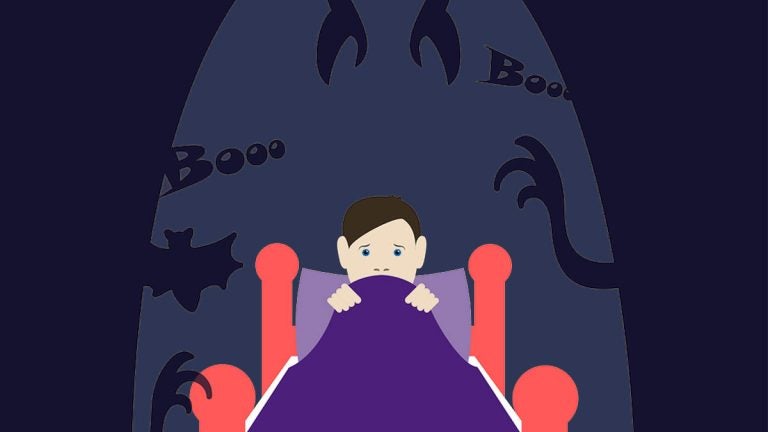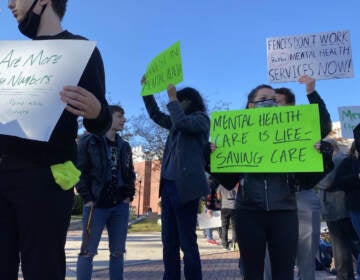My 9-year-old has insomnia; here’s what I learned

(Big Stock photo)
Our 9-year-old son has recently been battling insomnia, lying awake each night until 10 or 11 p.m. The rare nights he falls asleep easily, our son often has nightmares that he is either reluctant or unable to describe. Lately, he has been logging only about eight hours of sleep a night, far less than experts recommend for children his age.
School-aged children should be getting at least 10 hours of sleep a day, preschool-aged children 11-12 hours a day and teenagers 9-10 hours a day, according to the National Institutes of Health. Psychologist Melisa Moore, a member of the Children’s Hospital of Philadelphia’s Sleep Center team, suggests that kids ages 6-13 need at least 10-12 hours of sleep a night. So clearly, my son is not sleeping enough, which apparently may not be uncommon. The results of a study by Moore and colleagues indicated that almost one in five subjects, ages 8 to 16, reported insomnia symptoms.
This is critical because “sleep really is essential to health, safety, productivity and well-being, and it’s just as important as nutrition and exercise,” Dr. Judith Owens, director of the Center for Pediatric Sleep Disorders at Boston Children’s Hospital, told a gathering of parents in Radnor Township earlier this year.
Children and teens who are sleep-deprived may suffer problems ranging from mood swings and depression to social and attention-deficit issues, Katherine Dahlsgaard, a psychologist in CHOP’s Department of Child and Adolescent Psychiatry and Behavioral Sciences, told the Radnor gathering.
“If you deprive a teen of sleep, if you deprive an adult of sleep, they will become depressed,” Dahlsgaard said.
Teenagers who sleep less than eight hours a night have a threefold risk of suicide attempts, she added.
Sleep also regulates hormones associated with appetite, meaning that sleep deficiency may be aggravating the childhood obesity epidemic, according to the National Heart, Lung, And Blood Institute’s website.
So because our son’s insomnia is not only stressful for our family, but also alarming in terms of what it means for his growth and development, I started researching what I could do to help him.
Experts at CHOP’s Sleep Center recommend establishing a short but consistent nighttime routine, making sure the child’s room is cool and dark and that nightlights are not too bright, and switching off electronics at least one hour before bedtime. Exposure to light in the evening from television and computer screens suppresses
the body’s production of melatonin, a hormone that has been linked to the regulation of circadian rhythms, Owens said.
Avoiding frightening movies and shows and talking to children about their bad dreams—even asking them to draw pictures of the monsters that are keeping them awake—can be effective, according to KidsHealth.org.
However, none of these steps resolved our son’s issues, and after many, many weeks, we realized that his symptoms fit the definition of chronic insomnia: having trouble sleeping at least three nights a week for more than a month.
So we contacted a local child psychiatrist, who recommended that, for the short run, either my husband or I sit in our son’s room until he falls asleep. In the meantime, she is working with us to try to help him understand his worries, anticipating that as he does, his insomnia will dissipate.
This psychiatrist also suggested that I stop probing my son so much about what was on his mind and just spend time with him one-on-one, having fun. I felt relieved because we were finally getting help and because I had permission to just play with my son again, without feeling the constant pressure to try to solve all of his problems.
At least for now, it seems, I must accept that the source of our son’s nighttime turmoil will remain a mystery.
WHYY is your source for fact-based, in-depth journalism and information. As a nonprofit organization, we rely on financial support from readers like you. Please give today.




